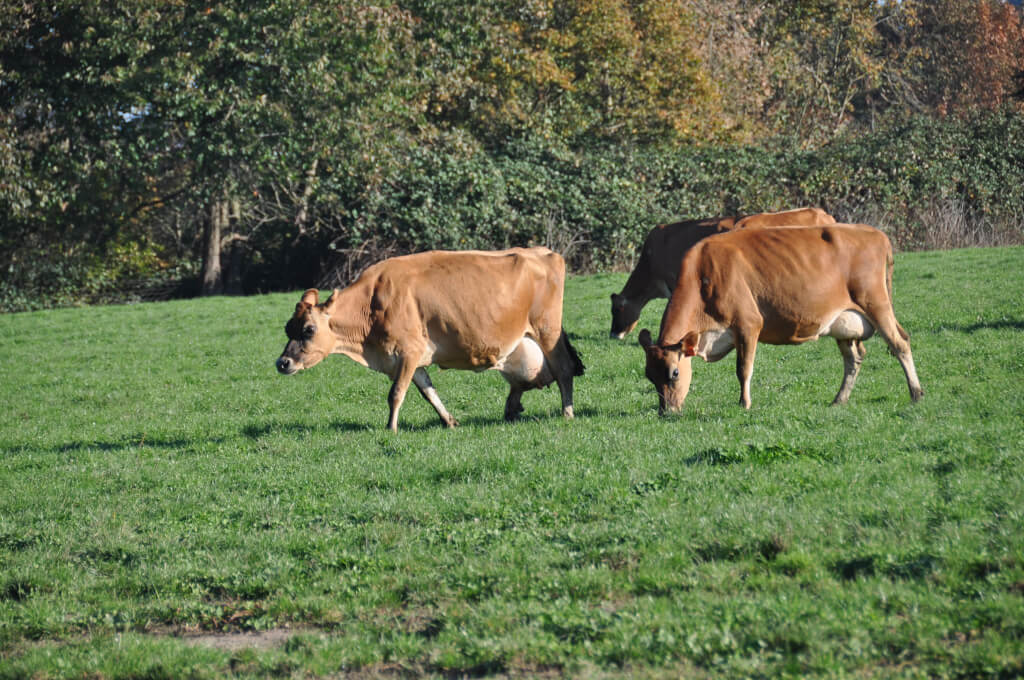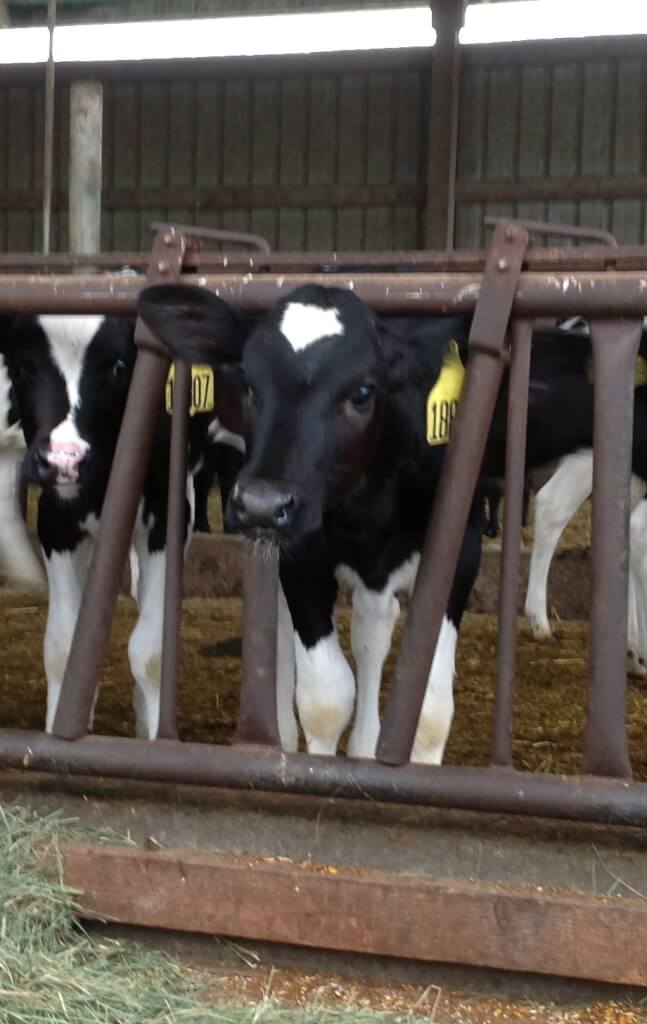Oregon Dairy Industry

Oregon is home to 228 dairy farms that have been family owned and operated for multiple generations. The Oregon dairy industry is a community-conscious, caring business that contributes nearly $1 billion to Oregon’s economic well-being each year. Oregon’s dairy farmers, with the assistance of 125,000 dairy cows, and Oregon dairy processors throughout the state, consistently produce top quality, delicious dairy products for consumers to enjoy. Oregon dairymen and women care about their cows, their communities, and the land, air and water of Oregon.
Oregon milk consistently ranks in the top five states nationwide for milk quality. This is a direct reflection of top notch animal care as well as the innovation and high standards within product processing. The commitment to producing and processing high quality, wholesome and nutritious dairy products has been standard since the industry was founded. Furthermore, all Oregon dairy farms have a Grade A Milk License and are one of the most heavily regulated and inspected industries in agriculture. They work closely with the Oregon Department of Agriculture (ODA), United States Department of Agriculture (USDA), and other regulatory agencies to ensure milk quality and safety.
 Providing cows with the best care possible is a dairy farmer’s top priority. Dairy farmers routinely work with veterinarians and nutritionists to ensure their cows are happy and healthy. Cows are provided with fresh feed and water daily, with access to both at all times. Oregon dairy cows spend time at pasture seasonally and live in spacious free-stall barns the rest of the year. Their feed consists of lush pasture grass or silage, hay, grain, various byproducts, vitamins and minerals. Each cow eats, on average, 100 pounds of feed daily and drinks 25 to 50 gallons of water.
Providing cows with the best care possible is a dairy farmer’s top priority. Dairy farmers routinely work with veterinarians and nutritionists to ensure their cows are happy and healthy. Cows are provided with fresh feed and water daily, with access to both at all times. Oregon dairy cows spend time at pasture seasonally and live in spacious free-stall barns the rest of the year. Their feed consists of lush pasture grass or silage, hay, grain, various byproducts, vitamins and minerals. Each cow eats, on average, 100 pounds of feed daily and drinks 25 to 50 gallons of water.
Oregon dairy farms are very diverse, ranging from small to large farms, but regardless of the size of the farm, cows are milked two or three times per day. When it’s time to be milked, cows enter the milking parlor where handlers clean, sanitize, and dry the cow’s udder before attaching a milking machine. The milker ensures that each cow is milked safely and comfortably. After leaving the cow’s body, milk travels through sanitized pipes and is stored in stainless steel tanks, where it is cooled to less than 45 degrees. A truck visits the farm several times per day (depending on the size of the farm) to pick up the fresh milk and deliver it to a processing facility. At the processing facility, milk is tested for safety and quality, and goes through several steps including, standardization, pasteurization, and homogenization. Milk is sold as fluid milk or processed into cheese, yogurt, ice cream, butter, and other specialty products such as lactose and whey protein.
 Milk is wholesome and nutritious and plays an important role in maintaining a healthy lifestyle. Dairy foods improve bone health, and reduce the risk of diseases such as cardiovascular disease and Type 2 diabetes. Milk also contains essential nutrients including calcium, protein, potassium, phosphorous, riboflavin and vitamin A, B12 and D. Not to mention, milk helps build lean body mass and aids in exercise recovery.
Milk is wholesome and nutritious and plays an important role in maintaining a healthy lifestyle. Dairy foods improve bone health, and reduce the risk of diseases such as cardiovascular disease and Type 2 diabetes. Milk also contains essential nutrients including calcium, protein, potassium, phosphorous, riboflavin and vitamin A, B12 and D. Not to mention, milk helps build lean body mass and aids in exercise recovery.
- Dairy Facts:
- Milk is the official state beverage of Oregon
- California is the #1 milk producing state in the nation
- Cows produce an average of 6.5 gallons of milk per day
- 25 gallons of milk can produce 9 gallons of ice cream, 25 pounds of cheese, or 11 pounds of butter
- June is National Dairy Month
- Oregon dairy produces roughly 2.6 billion pounds of milk annually
- There are six major breeds of dairy cattle: Holstein, Jersey, Guernsey, Ayrshire, Brown Swiss, and Milking Shorthorn
- Holsteins are the most popular breed and are known for their high milk production
- Jerseys are the second most popular breed and are known for the high butterfat content in their milk
- Dairy Farms are located in 21 of the 38 Oregon Counties
- 70% of Oregon dairy products are exported nationally and internationally
Learn more about local dairy farms here: Abiqua Acres, Willamette Valley Cheese Co.

